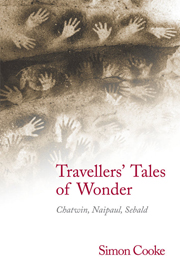Afterword: The ‘unlimited vicissitudes of travelling’
Published online by Cambridge University Press: 05 October 2013
Summary
It is in classifications that life flashes through so tantalisingly, in the registers that attempt to catalogue it and in so doing expose its irreducible residuum of mystery and enchantment. In the same way the project […], set out like Wittgenstein's Tractatus (I.I, I.2, 2.II, 2.I2 etc.), affords us in the truly minimal gaps between one number and the next a glimpse of the unlimited vicissitudes of travelling.
Claudio Magris, Danube (2001: 17)This study began with a consideration of dimensions of the literary and cultural horizon of expectations that are often brought to bear when encountering travels in contemporary literature; that is, what we may bring with us upon ‘arrival’. Before closing, it may be appropriate to offer a consideration of what we take with us when we ‘leave’. The question is not so much, as is often the case in studies in travel writing, ‘where next?’ This study has attempted to question a model of reading travels as exclusively or primarily documents of geographical discovery, rendered precarious by the increasingly full and competing versions of the world. My area of concern here has more to do with the question of ‘how next?’ The texts that have been gathered together in ‘an attempt to catalogue’ the form of traveller's tale of wonder in contemporary literature has been conducted from the first with the hope that it would expose the ‘irreducible residuum of mystery and enchantment’ that the texts considered evoke.
- Type
- Chapter
- Information
- Travellers' Tales of WonderChatwin, Naipaul, Sebald, pp. 175 - 177Publisher: Edinburgh University PressPrint publication year: 2013

